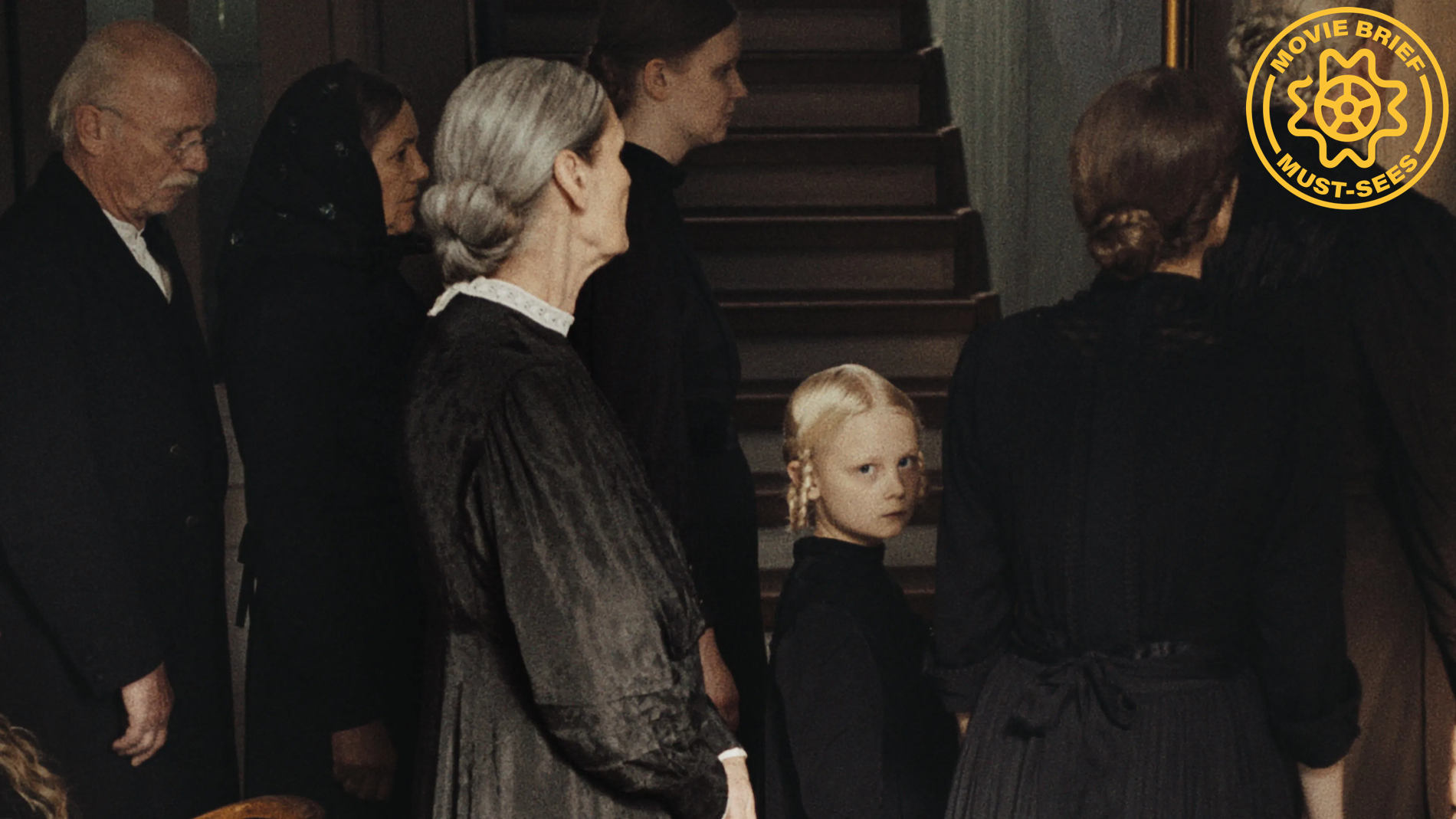Issue
66
Sound of Falling

- Director:Mascha Schilinski|
- Screenwriter:Louise Peter, Mascha Schilinski|
- Distributor:Mubi|
- Year:2025
A powerful reminder of what movies — and only movies — can do, Sound of Falling is, quite simply, the best film of the year.
Mascha Schilinski’s time-traversing mood piece is a kaleidoscopic journey that spans more than a century but never leaves its single physical setting, often jumping from one timeline to another so seamlessly that you don’t realize it. Set in a rural German farmhouse across four different eras, it takes a familiar premise and turns it into something breathtakingly original. The temporal boundaries are porous, bleeding into and merging with one another as four young women unknowingly echo one another. At times they seem vaguely aware of those who’ve come before and after them, like phantom limbs that carry the attendant pain: “Funny how something can hurt that’s no longer there,” says the youngest and most compelling of the interlinked heroines.
That would be young Alma (Hanna Heckt), a strange little towhead from the pre-World War I timeline whose ruminations on life and death set the tone for everything that follows. In the film’s most compelling episode, she and her older sisters come across a series of death portraits during a funeral in the family home. One of them is of a child who bears a striking resemblance to Alma, right down to her name: “Maybe her spirit passed into you,” one of her sisters says. That discovery is preceded by an inexplicable yet deeply compelling scene in which the siblings playfully chase their maid through the house, with Alma trailing behind and everyone but her seemingly disappearing as she passes the threshold from one room to the next.
Is this a supernatural experience or simply a filmmaking technique meant to evoke the headspace of an imaginative child? Schilinski never answers that or many of the other questions she raises, an elliptical approach that proves spellbinding rather than frustrating. Meaning doesn’t reveal itself in Sound of Falling; it accumulates. In never holding our hand to guide us toward easy explanations, the film compels us to reach out and grasp it ourselves.
Not all of the pain is metaphorical. In the first scene, twentysomething Erika (Lea Drinda) walks down a hallway on crutches with what appears to be a missing limb. Before entering one of the bedrooms, she lifts her dress over her knee to reveal that she’s merely tied up her left leg to make it appear and feel as though she’s actually missing it. We quickly realize why — in the bedroom is a relative whose left leg has actually been amputated and whose pain she apparently wants to understand — but the full force of her experiment in empathy doesn’t hit until much later in the film.
The same can be said of much else in Sound of Falling. Its back-and-forth time-hopping and masterful editing by Billie Mind and Evelyn Rack give each overlapping timeline its own momentum that builds toward cascading crescendos. This is Schilinski’s second feature after 2017’s Dark Blue Girl, but she’s said in interviews that it feels like her debut. It’s a remarkable breakthrough either way, one for which she won the Jury Prize at the Cannes Film Festival earlier this year.
More movies — all movies? — should look like this. Shot in the boxy 4:3 ratio and gloriously grainy, it has inky, saturated colors and enough candlelit interiors to make Barry Lyndon blush. At times it’s like watching one of those death portraits come to life. The sound design is no less immersive, with record scratches, abrupt cuts to silence, and other booming sounds that add yet another layer of unreality — as though the characters realize at the same time we do that all of this is fleeting.
Meaning doesn’t reveal itself in Sound of Falling; it accumulates.
The narrative is as diffuse as the lighting, which lends the interior scenes a ghostly aura. If you asked me to neatly summarize the plot and explain why Sound of Falling is interesting as an actual story, I’m not sure I could do so without watching it two or three more times. But as an experience, the kind that reminds you why we go to the movies in the first place, it’s a masterpiece. Watching the movie is a bit like sitting outside as it gets dark on a summer night and seeing fireflies blink in and out of view: each small moment captures your full attention and leaves an afterimage that you can still see when you close your eyes.
Fittingly for a movie with so many overlapping perspectives, Sound of Falling is, in brief flashes, reminiscent of both Michael Haneke’s prewar fable The White Ribbon and Sarah Polley’s feminist drama Women Talking. It’s a movie about how family tragedies become family secrets, the ones adults whisper about when the children are in the room hearing and understanding more than they should. Every family has its folklore, and all of it informs our experiences whether or not we’re consciously aware of it.
Sound of Falling might be thought of as a ghost story, but only in the sense that all of us are eventual ghosts with no way of knowing what energy we might leave behind for future generations to unwittingly absorb. Experiencing it is like watching several lives flash before your eyes and made no less compelling by the fact that they aren’t your own. The movie is about not only intergenerational female drama but also, just as pressingly, death: knowing it’s inevitable but not knowing what happens afterward. Are we all figments of someone else’s imagination or ghosts in one another’s dream? And if we are, what happens when they wake up?
